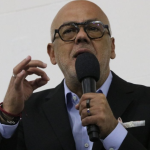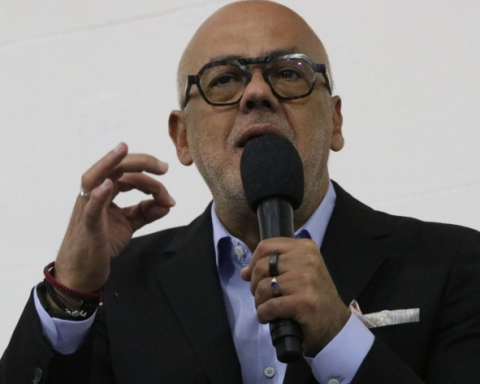April 7, 2023, 3:13 PM
April 7, 2023, 3:13 PM
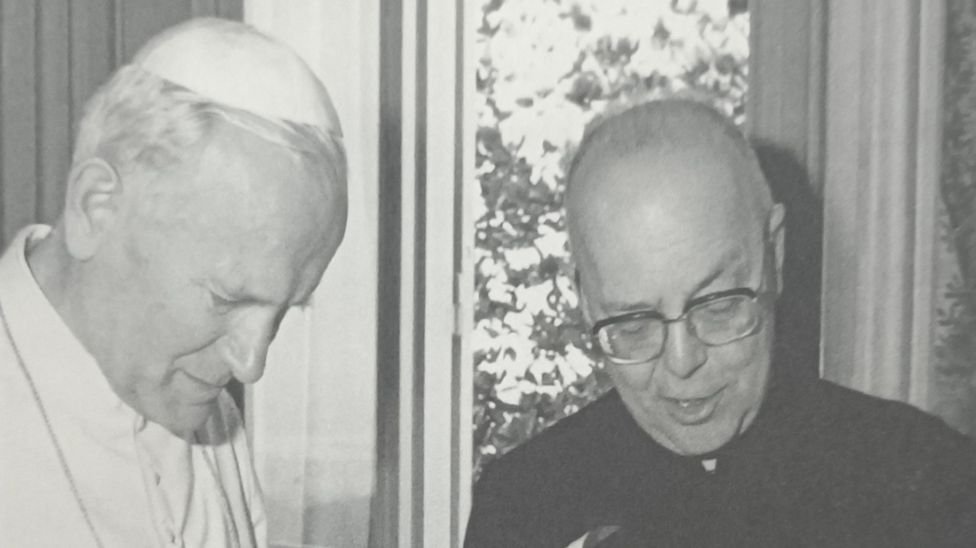
“Who better than a gladiator to face the devil on equal terms?” joked one of the film’s producers. The Pope’s Exorcist (“The Pope’s Exorcist”) recently released.
Producer Michael Patrick Kaczmarek was alluding to that film’s lead, actor Russell Crowe, known for his starring role in the 2000 film “Gladiator,” for which he won an Oscar.
But “The Exorcist of the Pope” is based on the encounters with “the demon dand real life“ of the Catholic priest Gabriele Amorththe Vatican’s leading exorcist from 1986 until his death in 2016.
Amorth claimed to have performed more than 60,000 exorcism rites, wrote dozens of books about it, and founded the International Association of Exorcists. In one of his texts, “The Last Exorcist”, compared the ritual to a battle.
While the Ancient Roman gladiator wore armor and wielded a double-edged short sword (gladius) or a spear and trident, the exorcist confronts the demon dressed in a purple stole and armed with holy water to sprinkle on the possessed and sacred oil to smear the sign of the cross on their foreheads.
However, this mild-faced priest, who as a child got into mischief during mass and pursued secular studies, never imagined that he would end up being designated by the church as a warrior of Jesus Christ against the action of Satan.
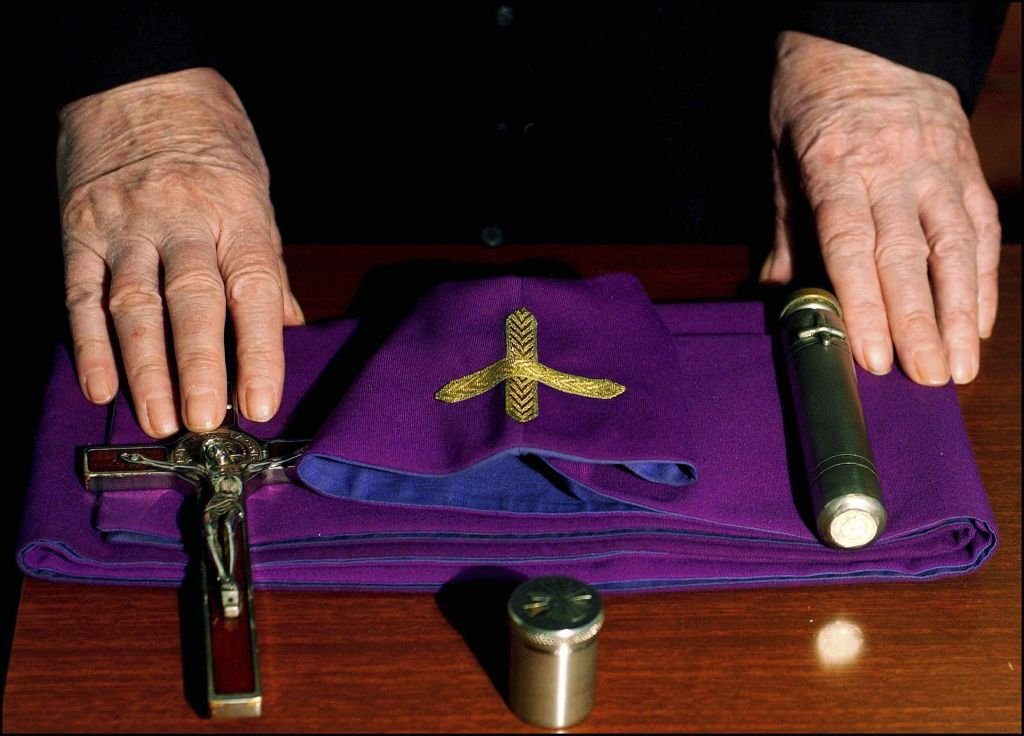
From joker to exorcist
Gabriele Amorth was born in Modena, Italy, in 1925. As a child he played sports such as fencing and basketball, fought bravely in World War II, graduated with degrees in Law and Journalism, and tried his hand at politics with the Christian Democratic Party.
But he had already discovered his ecclesiastical vocation early and was ordained a priest in 1954.
However, his appointment as exorcist came as a complete surprise and it was the result of a joking conversation he had with Cardinal Ugo Poletti, Vicar Bishop of Rome.
The bishops are in charge of delegating to the priests of their dioceses the power conferred by Jesus to expel demons. One morning in 1986, Amorth decided to visit Cardinal Poletti as a surprise to tell him some new jokes and, as was his custom, to brighten his day.
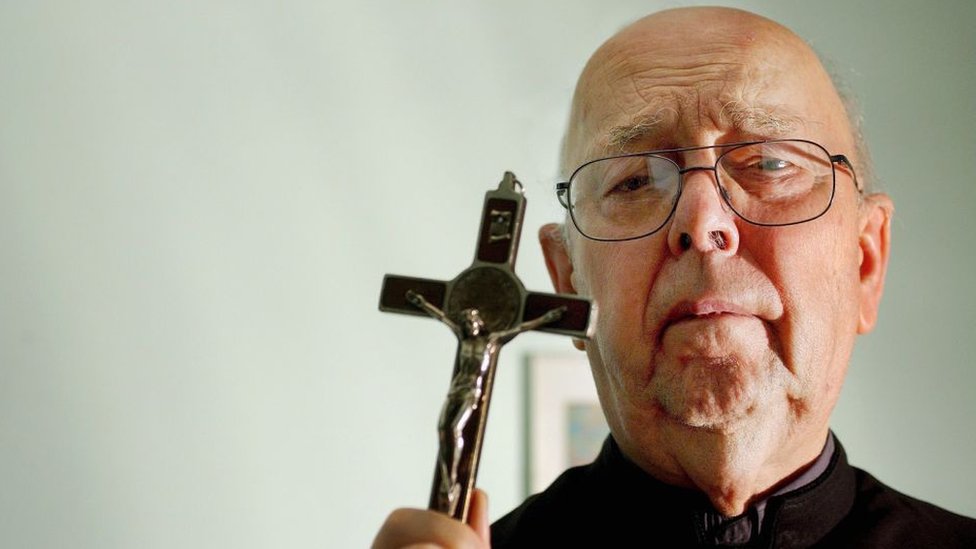
During the informal conversation, it occurred to him to mention Father Cándido Amantini, at that time an exorcist of the diocese of Rome for 36 years, who used to treat 70 to 80 people suspected of demonic possession in just one morning.
“Do you know Father Cándido?” Poletti asked, surprised. “Yeah!” Amorth replied.
“I wanted to know, out of curiosity, the place where he performs exorcisms,” he said half jokingly. “I met him and from time to time I go to visit him,” she explained.
At that moment, Poletti opened a drawer in his desk, took a sheet of the diocese’s letterhead, and silently began to write. He put the sheet in an envelope and, with a smile, handed it to Amorth: “Congratulations!”
Amorth was stunned by what the letter said: “I, Cardinal Ugo Poletti, Vicar Archbishop of Rome, appoint Father Gabriele Amorth, religious of the Holy Society of São Paulo, exorcist of the diocese. He will collaborate with Father Cándido Amantini on as long as it takes.”
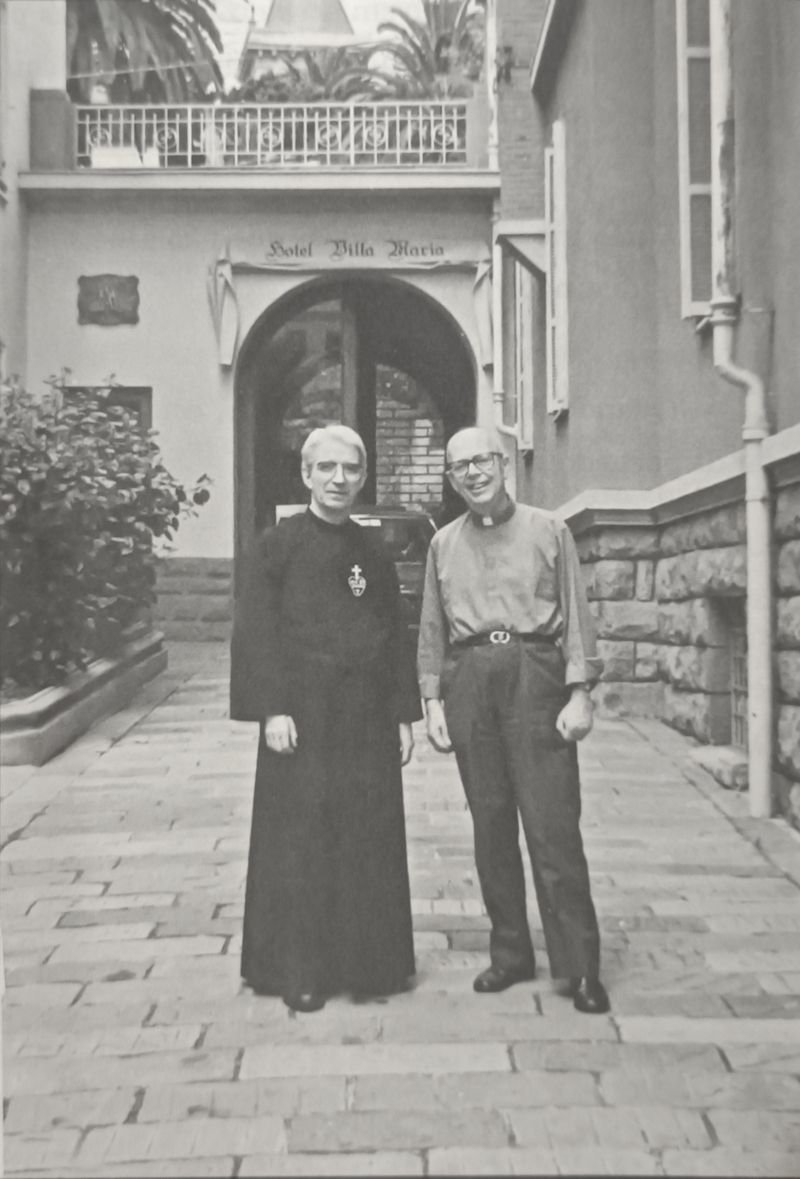
“Your Eminence, I… I’m only good at telling jokes and pulling pranks,” the priest stammered. “The Church desperately needs exorcists”interrupted the cardinal.
“Father Cándido, some time ago, asked me for an assistant. I always had a pretext. Now that you tell me that you know him, I no longer have him. You will do the job well. Do not be afraid,” Poletti encouraged him.
fighting satan
Gabriele Amorth performed the first of his more than 60,000 exorcisms on February 21, 1987, on a 25-year-old peasant who, when he went into a trance, would shout profanities in English that another strange voice (within him) would translate.
On another occasion, an illiterate woman uttered insults in a language that, after investigation, turned out to be Aramaic (an ancient Middle Eastern language).
Amorth had memorized the 21 rules that precede the rite of exorcism that appear in the ritual R.omanum from Pope Paul V, written in 1614. “Without these rules you will be defeated,” they warned him.
The main signs of possession, according to the book, are speak unknown languages, manifest hidden facts and demonstrate strength beyond his physical condition.
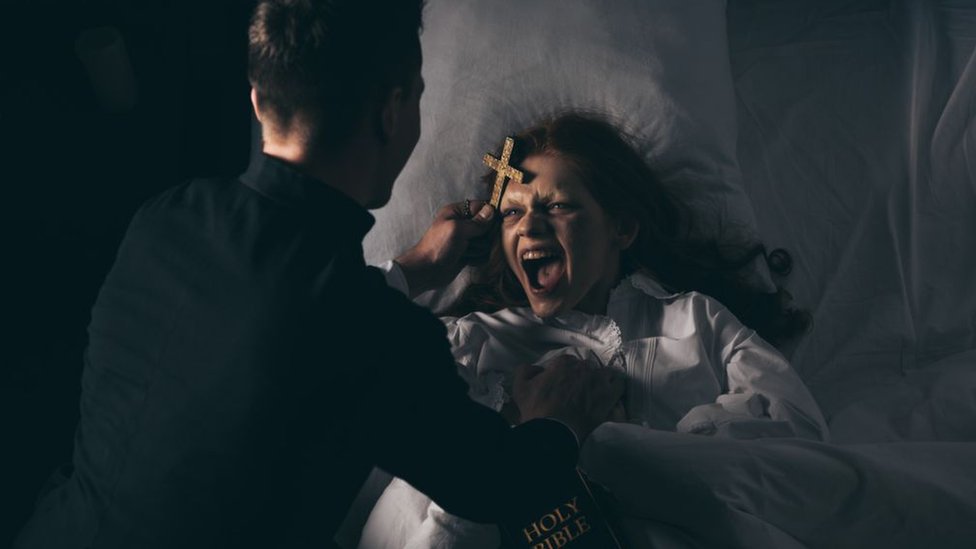
Once, during an exorcism session, Amorth saw an 11-year-old boy being held up by four burly men. “The little boy blew them up,” she said.
On another occasion, a 10-year-old boy lifted a heavy table over his head. “He would never have done it alone,” he testified.
But the most serious symptom is an aversion to the sacred, such as the person who faints when going to mass or foams with rage when seeing a priest.
One of the most “terrifying” episodes is described in his book “My first time against Satan”, in the intervention of a minor who was believed to be possessed.
From one moment to another, The boy’s eyes rolled back and his head fell back on the chair. Soon after, the temperature in the room dropped horribly. and Amorth began to feel an icy cold.
Later, according to the exorcist’s description, the possessed began to levitate. “Half a meter above the chair,” Amorth wrote. “There he remained motionless, suspended in the air for several minutes.”
Demonology and Hollywood
If any of the events described above seem familiar to you, it’s most likely because you’ve seen the movie. “The Exorcist” from 1973with a screenplay by William Peter Blatty based on his book of the same name.
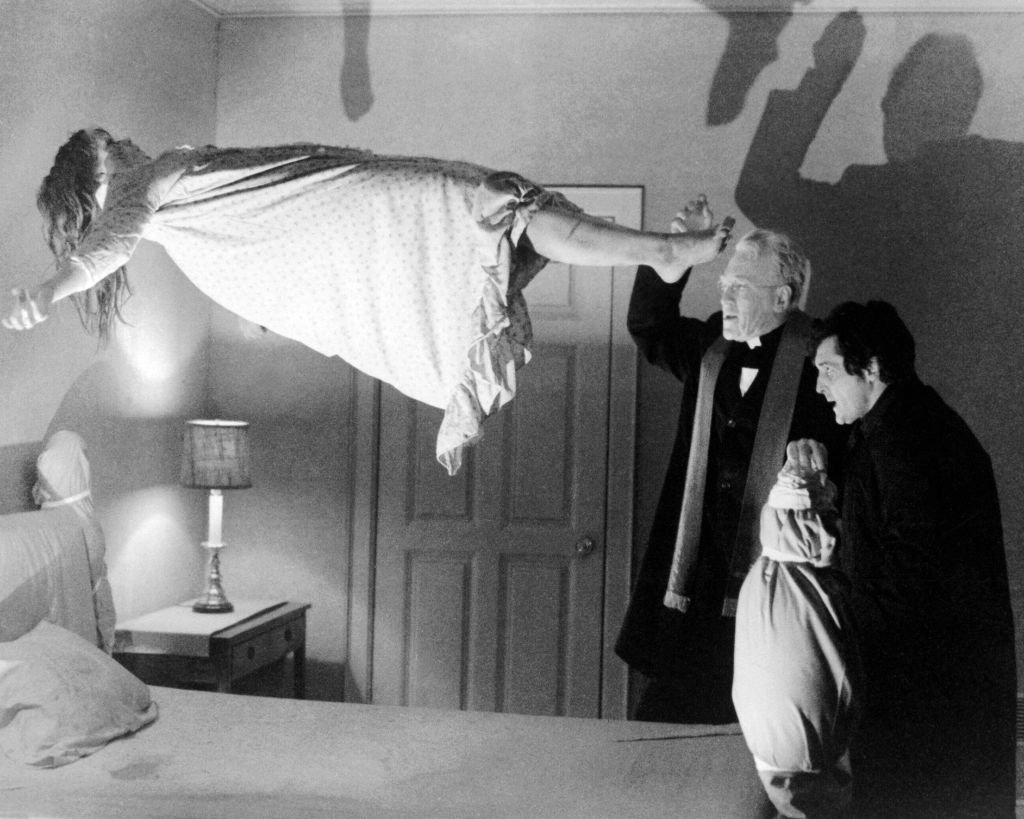
Blatty was inspired by the true story of a 14-year-old boy who was possessed and exorcised by a Jesuit priest, in a case that took place in 1949 in the city of Cottage City, in the state of Maryland (USA). ).
Gabriele Amorth praised the film that gave the screenwriter an Oscar. “I’m grateful to ‘The Exorcist,'” he said in one of his books.
“Although somewhat sensational, with unrealistic scenes, it is substantially faithful. It reached a large audience and promoted the figure of the exorcist.”
Years later, in 2016, the director of “The Exorcist”, William Friedkin, asked Amorth for permission to film an exorcism.
The priest authorized the filming, but imposed three conditions on him: he had to go alone, take a single video camera, and not interfere in the ritual.
The result of the exorcism of Cristina, a 46-year-old Italian architect, was a documentary entitled “The Devil and Father Amorth”. Four months after shooting, Gabriel Amorth died in Rome at the age of 91.
In addition to leaving dozens of books about his conspiracies against the devil, Amorth wrote two memoirs: “An exorcist tells his story” and “An exorcist: more stories.”
These served as the basis for the new film “The Pope’s Exorcist,” in which Australian actor Russell Crowe plays the role of the famed priest.
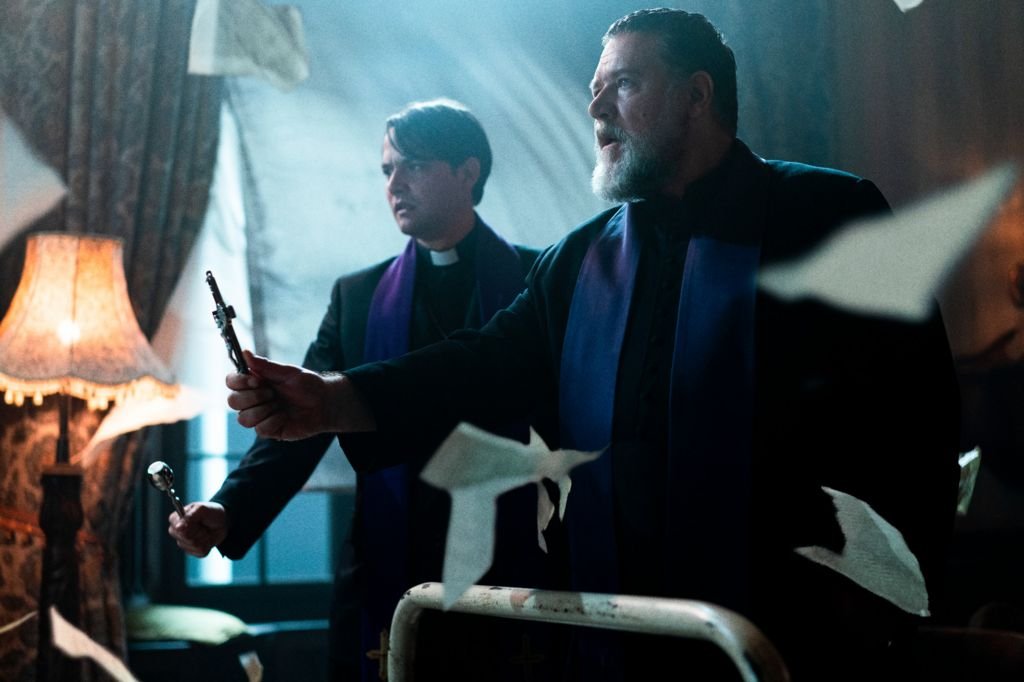
The disturbing film begins when an American mother moves to an old castle in Spain with her two children and one of the youngest falls possessed.
The exorcist is called to intervene, but this demon is particular; he thrives on the insecurities and remorse of the religious, which he discovers in the process a ancient conspiracy that the Vatican has desperately tried to hide.
The interpretation of a religious figure could generate criticism, but in an interview with the agency ReutersCrowe claimed that he had held on to Amorth’s accounts.
“Everyone will have their own opinion, but these are books that have been written from first-hand experience,” he said.
a daily fight
In the last years of her life, Gabriele Amorth performed an average of five exorcisms a day. But there was a time when he boarded between 10 and 15. So many that he had to leave a message on his answering machine to restrict exorcism requests to one hour a week.
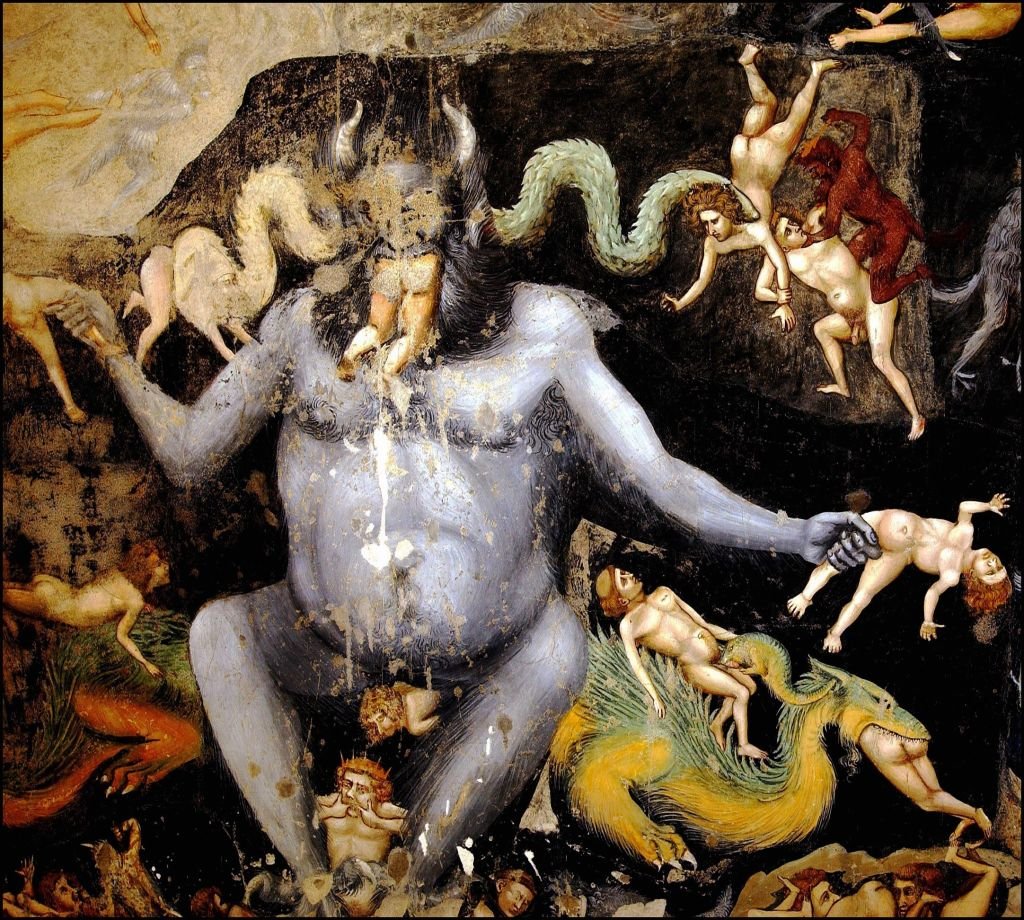
Of every ten exorcisms he performed, nine were on women. A devotee of Our Lady of Fatima, Amorth was never able to explain why, but he supposed that the devil wanted revenge on the Virgin Mary.
One exorcism is never the same as another, he said. He came out of some battles with bruises all over his body, after receiving kicks, punches, bites and the occasional spit, according to what he said.
On one occasion, an American priest asked Amorth if he was afraid of Satan.
“I’m not the one who’s afraid of him. He should be afraid of me and all who live in Jesus Christ,” Amorth replied.
And when someone told him that he “believed in God but wasn’t a practitioner”, he replied with his usual sarcasm: “Oh yeah! The devils too… They believe in God but aren’t practitioners. By the way, i never met an atheist devil“.
Remember that you can receive notifications from BBC Mundo. Download the new version of our app and activate them so you don’t miss out on our best content.






